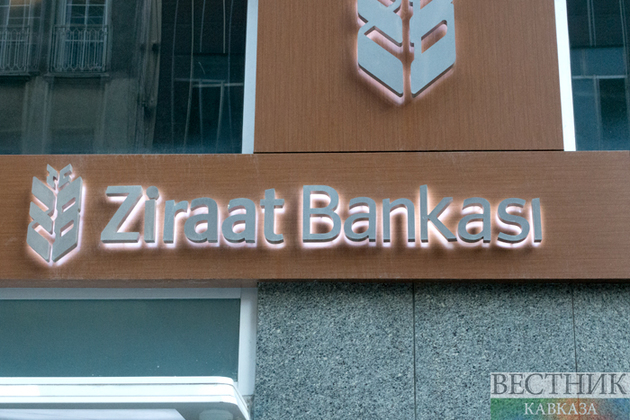Turkey's Treasury said on Friday fighting inflation remained its top priority after authorities announced fresh measures to shore up an economy beleaguered by surging prices and a sliding lira, though analysts expected the latest steps to have little effect, Reuters writes.
The Treasury said it would issue domestic bonds indexed to the revenues of state enterprises to encourage lira asset savings, the central bank raised the required reserves ratio for lira commercial cash loans to 20% from 10%, and the banking watchdog tweaked a maturity limit for consumer loans.
"The fight against inflation remains top priority. In this struggle the importance of coordination between institutions is clear and all our institutions are acting with the understanding of a joint struggle," a Treasury statement said.
The steps prompted volatile trade in the lira . It firmed as far as 16.8 to the U.S. dollar ahead of the announcements before sliding back to 17.3 after they were unveiled. It traded at 17.21 at 0800 GMT after the Treasury's latest statement.
The lira has slid 23% this year after last year's 44% tumble, which was precipitated by a series of unorthodox central bank rate cuts carried out under pressure from President Tayyip Erdogan despite surging inflation. The lira crisis meanwhile aggravates inflation, especially this year as anti-Russian sanctions have driven up energy and food prices.
Analysts were sceptical how much the latest steps could move the needle, saying the measures failed to tackle the core issue of rampant inflation and low interest rates. "As far as I see, there isn’t any policy change available to take inflation under control," said Arda Tunca, Istanbul-based economist and columnist at PolitikYol.
Sources told Reuters the government was considering pushing a supplementary budget through parliament before a recess next month to cover possible summer payments. "I always wonder what kind of rabbit they will pull out of the hat next time – so far I have not seen anything that would help stabilise the lira," said Per Hammarlund, chief EM strategist at SEB.
Turkey is suffering economic and market headwinds as Erdogan faces tough elections by mid-2023, with his approval ratings already hit by rocketing inflation, which hit 73.5% in May. Turks like Onder Ozturk, 42, a barber in Istanbul, have borne the brunt of the pain from soaring prices. "We never go out to eat anymore," said Ozturk, who has cut discretionary spending by half, including visits to his home town. "We’ve limited our spending to clothes and personal needs."
Real persons
Commenting on the move to issue revenue-index lira bonds this month, Spinn Consulting's Ozlem Derici Sengul noted that such bonds were issued in 2009. "Not corporates but only real persons are targeted this time, but according to my humble view it is difficult to attract deposit holders who do not have equity investing experience," she said.
The Treasury said the use of the lira and practices to increase its appeal will continue without compromising free market rules. Separately, banks will have to hold between 3% and 10% of fixed-rate bonds for foreign currency deposit accounts, the central bank said, in a move boosting demand for fixed-rate bonds and effectively lowering treasury's borrowing costs, a senior banker told Reuters.
In other moves, the banking watchdog reduced the maximum maturity for consumer loans over 100,000 lira ($5,814) to 12 months from 24, and plans to ease restrictions imposed on foreigner investors’ access to the lira via the swap facility.
The capital markets board said it had reduced its fees in order to encourage foreign funding for public offerings held in Turkey, and to encourage companies to obtain funds by issuing capital market instruments abroad. Local bond yields slipped on the latest announcements with the yield on the 10-year benchmark bond easing to just over 21% after ending the day at 25.72% on Thursday. Borsa Istanbul's main banking index climbed 4%.






